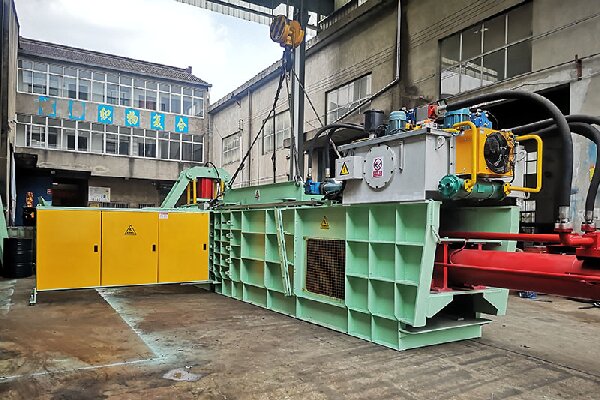Faced with a variety of plastic film baling Machine on the market, how do you make the wisest choice and ensure a worthwhile investment? The selection process requires the same care as choosing a strategic partner, necessitating a systematic assessment of the match between your needs and the equipment’s performance. This guide will outline the key decision-making factors to help you find the most suitable business partner.
The first and most crucial step is a clear self-needs analysis. You need to clarify: What type of film do you primarily process? (For example, clean industrial stretch film or agricultural mulch film mixed with sand?) This determines the required wear resistance and power of the equipment. What is your average daily or monthly processing capacity in kilograms or tons? This directly determines whether you need a small vertical machine, a medium-sized horizontal machine, or a large production line. What are your site limitations? (e.g., space size, whether the power configuration is three-phase or single-phase) What is your budget range? Clarifying these fundamental questions is the first step to avoiding blind selection.
Next, you need to thoroughly compare the technical parameters and configuration details of the equipment. Focus on the following key indicators: compression chamber size (determines the amount of material processed in a single operation), final bale density and weight (higher density results in better transport efficiency), and compression force (greater force means stronger ability to handle difficult-to-compress materials). Simultaneously, examine the brands of core components, especially the hydraulic system, motor, and PLC, just as you would a car engine, as these affect the long-term reliability of the equipment. Automation level is also a crucial differentiator: do you choose an economical but manually operated semi-automatic model, or a highly efficient, labor-saving, but more expensive fully automatic model?
Finally, a comprehensive evaluation of the supplier’s overall capabilities is essential. Good supplier provides not only products but also services. Inquire whether they offer on-site trial services, allowing you to test the performance with your own materials. Thoroughly understand their after-sales service policies: what is the response time? Do they provide installation, commissioning, and technical training? What is the warranty period? Is spare parts supply sufficient? Be sure to request existing customer case studies and, if possible, conduct on-site visits to hear genuine feedback from current users. Remember, purchasing a plastic film baler is a long-term investment; stable performance and comprehensive after-sales service are far more important than a temporarily low price.

Nick Baler’s waste paper and cardboard balers deliver high-efficiency compression and bundling for various recyclable materials,including corrugated cardboard (OCC),newspaper,mixed paper,magazines,office paper,and industrial cardboard.These robust baling systems enable logistics centers,waste management operators,and packaging companies to significantly reduce waste volume while enhancing workflow productivity and lowering logistics expenses. With increasing worldwide emphasis on sustainable packaging practices,our comprehensive range of automated and semi-automatic baling equipment offers tailored solutions for enterprises managing substantial quantities of paper-based recyclables.Whether for high-volume processing or specialized applications,Nick Baler provides reliable performance to support your recycling operations and sustainability goals.
https://www.nkbaler.com
Email:Sales@nkbaler.com
WhatsApp:+86 15021631102
Post time: Nov-07-2025